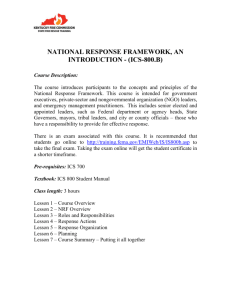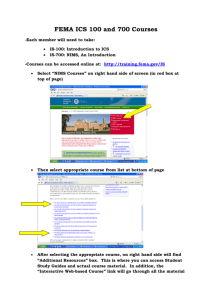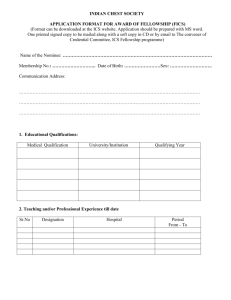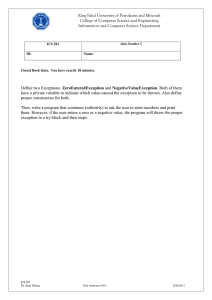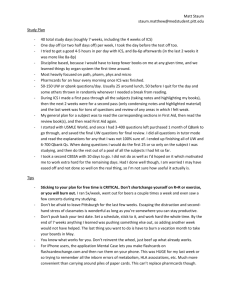Overall Educational Objectives (Summary) At the completion of this
advertisement
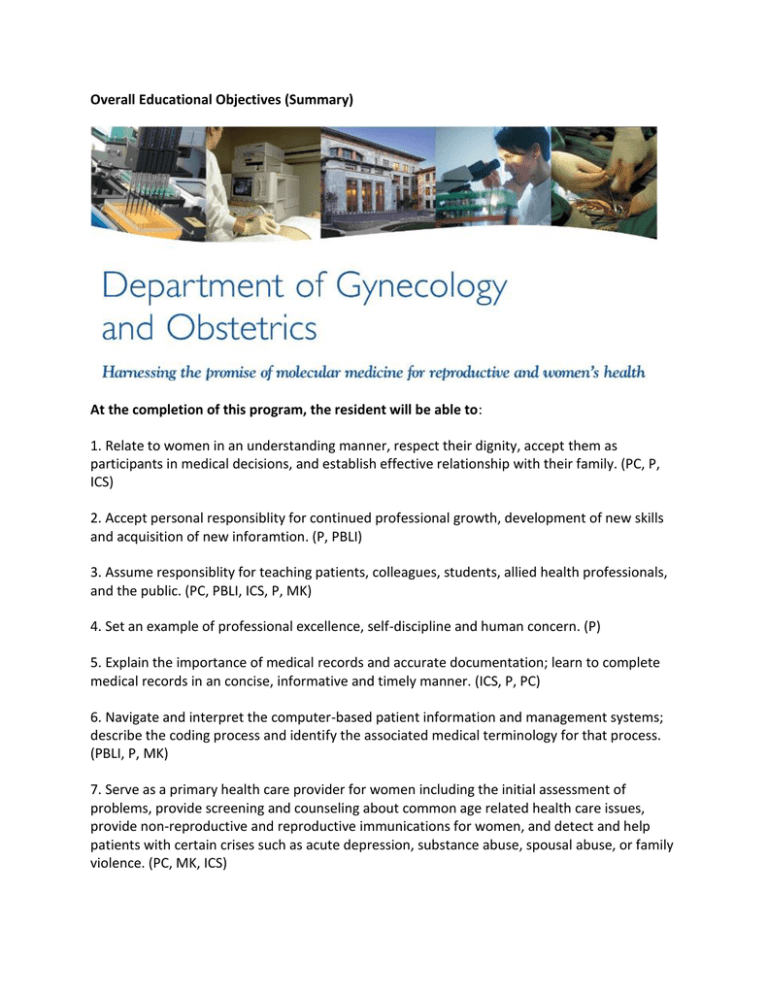
Overall Educational Objectives (Summary) At the completion of this program, the resident will be able to: 1. Relate to women in an understanding manner, respect their dignity, accept them as participants in medical decisions, and establish effective relationship with their family. (PC, P, ICS) 2. Accept personal responsiblity for continued professional growth, development of new skills and acquisition of new inforamtion. (P, PBLI) 3. Assume responsiblity for teaching patients, colleagues, students, allied health professionals, and the public. (PC, PBLI, ICS, P, MK) 4. Set an example of professional excellence, self-discipline and human concern. (P) 5. Explain the importance of medical records and accurate documentation; learn to complete medical records in an concise, informative and timely manner. (ICS, P, PC) 6. Navigate and interpret the computer-based patient information and management systems; describe the coding process and identify the associated medical terminology for that process. (PBLI, P, MK) 7. Serve as a primary health care provider for women including the initial assessment of problems, provide screening and counseling about common age related health care issues, provide non-reproductive and reproductive immunications for women, and detect and help patients with certain crises such as acute depression, substance abuse, spousal abuse, or family violence. (PC, MK, ICS) 8. Describe genetics, normal fetal development, and teratology as well as apply this knowledge to preconcetion and genetic counseling. (PC, MK) 9. Explain the physiology and disease mechanisms of routine and complex obstetrical and gynecologic disorders then apply diadnostic and theraputic procedures as outlined in the CREOG objectives. (PC, MK) 10. Describe population dynamics; understand and provide contraception and sterilization; have a working knowledge of induced abortion; manage related side effects and complications. (PC, MK) 11. Diagnose and treat breast disease, as well as, recommend and carry out therapy or appropriate referral. (PC, MK, ICS) 12. Demonstrate the principles of critical care as it relates to management of shock and/or acute respiratory distress, hemodynamic monitoring, cardiopulmonary resuscitation, and management of severe drug reactions. (PC, MK, PBLI) 13. Demonstrate the essentials of basic and clinical research: conduct and formally present research (specifically for the annual Resident Research Day). (MK, P, ICS, PBLI) 14. Use a medical reference library and access information systems via the internet to evaluate current literature. (PBLI)
